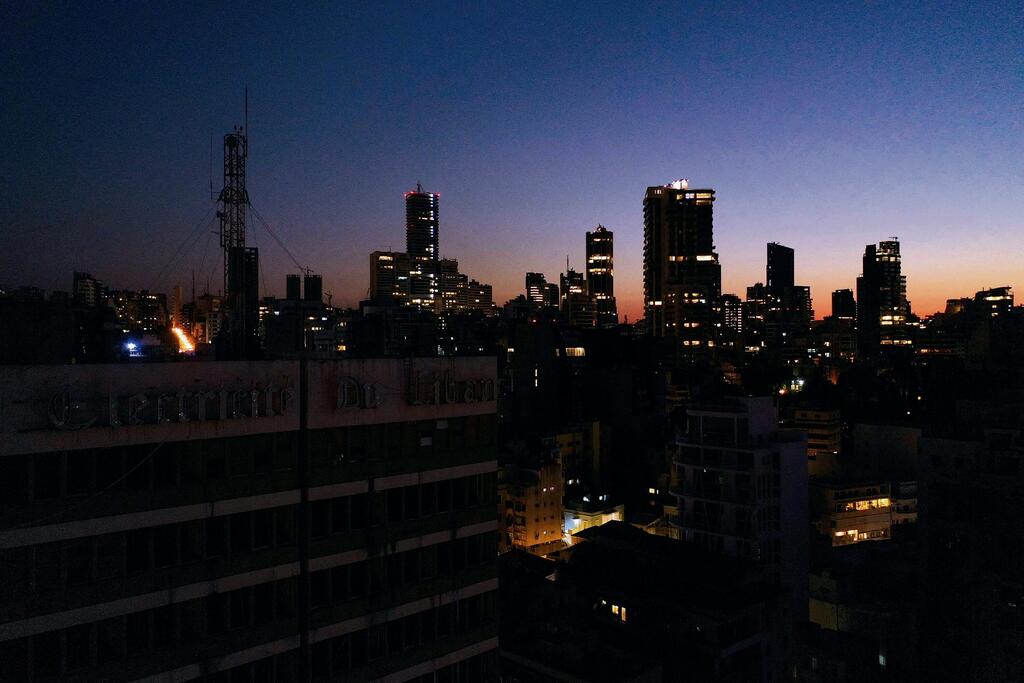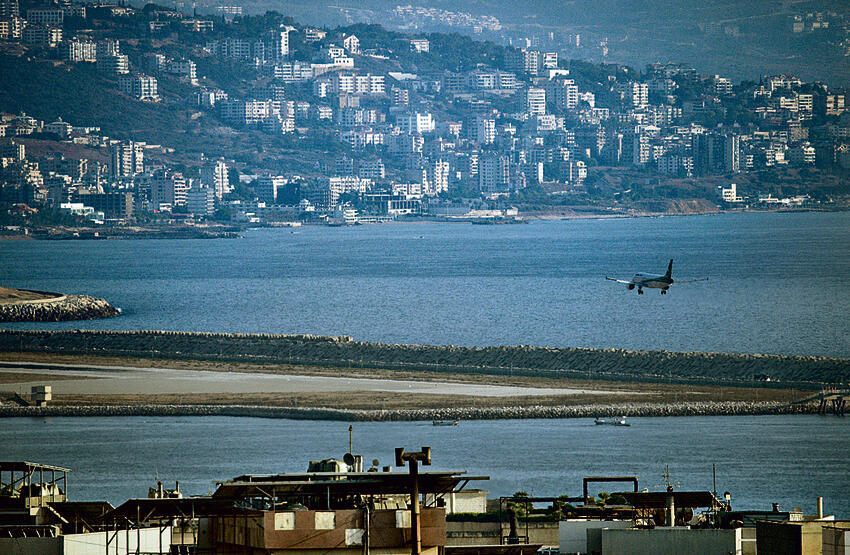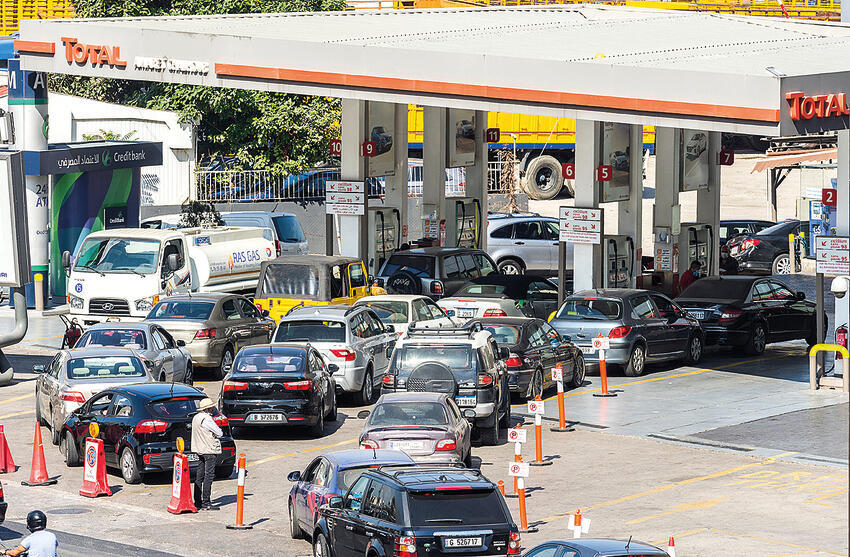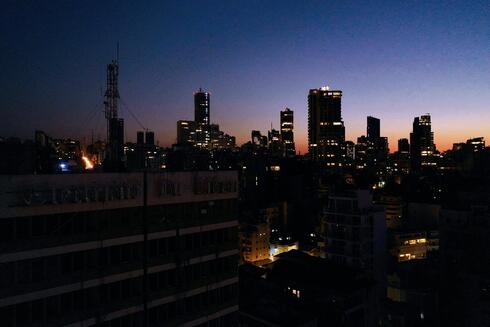
Over the weekend, Lebanese police were called to Beirut’s airport after a violent altercation broke out between two men, each backed by large families, over a queue for a flight to Dubai.
The police intervened, separating the men who had injured each other, and instructed them to wait quietly for the plane’s departure. The anxious wait, lasting seven hours, unfolded under the dim light of a generator.
“This is absurd,” said Nidal, a Lebanese woman who managed to leave the country via Turkey to Europe. “You wait for hours for a flight, wondering whether it’s better to stay in Beirut without electricity or try to escape abroad with skyrocketing flight prices and no guarantee of a seat due to overcrowding and passengers storming the plane.”
Although the Algerian government has pledged to supply Lebanon with fuel on a type of loan—one whose repayment is uncertain—there is talk in Lebanon that electricity could be fully restored within a week. In the meantime, from north to south, residents are relying on private generators for a mere two hours of power each day.
Shops have shuttered due to the enforced darkness, desalination plants and water pumps operate only on local generators, and citizens have been asked to conserve water. Hospitals and prisons are plunged into near-total darkness, and Beirut’s main airport, along with two smaller airports in Jounieh and the northern region, are struggling to function. Shipping in and out of Lebanon’s ports has come to a complete standstill.
The government and parliament have canceled all meetings, while factories, trains and private cars, running on their last drops of fuel, have ground to a halt. Schools, which had become shelters for those fleeing the war in the south, are closed, as are most restaurants and pharmacies.
Only fruit and vegetable shops remain open during daylight hours, with goods displayed outside—but prices have soared. Tomatoes now cost $4 per kilogram, apples $4 to $6 per kilogram, and meat is almost nonexistent. Shopping activity has dwindled to nearly nothing.
Nirmeen and Murad, clothing shop owners in Beirut’s southern Dahieh district, a Hezbollah stronghold, have locked up their store and are now searching for a safe haven in northern Lebanon for themselves and their extended family: their three children and both sets of grandparents. They fear the impending war.
“Power outages are nothing new,” Murad said. “We’ve been through tougher times in 2006 during the first economic crisis, and during the Beirut port explosion four years ago, and there have been planned outages after Israeli attacks. But now it’s even more worrying because we hear Hezbollah is preparing to strike Israel, and the Israelis are promising to retaliate. I listen to the news on a transistor radio—I stocked up on batteries, so I’m up to date. The question is, where do we take the family?”
It won’t be easy. In northern cities, seen by Beirut and central Lebanon residents as safer, rent for a four-room apartment has suddenly jumped from 2,000 Lebanese lira to 20,000 or even 30,000 lira. It’s also not easy for many other Lebanese, tens of thousands of whom are unemployed, many living in poverty, with banks drained of funds and the cost of living far outpacing incomes.
“I worked at Lebanon’s central bank for 20 years in a respectable position, but I was laid off due to cutbacks,” said Maria, an economist who has been unemployed for six months. “I received excellent recommendation letters, but there are no jobs. This is our reality. I was lucky and perhaps talented enough to hold an interesting job with a good salary, but that’s over.
“We’re now living off my husband’s salary—he’s a road engineer—and my savings. I still haven’t received my severance pay. They tell me there’s no one to sign off on the funds I’m owed after 20 years of work. They also say we’ll probably reach a compromise, meaning I won’t get the full compensation I’m entitled to. I didn’t steal money or live at the expense of Lebanese citizens like others,” she said, referring to the widespread corruption among the country’s leaders, which has been one of the key factors dragging the economy down.
Lebanon has been on a rapid downward spiral for the past four years, becoming one of the world’s most failing economies. The local currency, already suffering from triple-digit inflation, has become nearly worthless, while food prices have skyrocketed by hundreds of percent.
With tens of thousands of businesses closing and a large portion of the population living in poverty, the country’s GDP has plummeted, and as of early 2023, Lebanon’s national debt stood at approximately $103 billion.
In the past decade, the European Union provided Lebanon with nearly $4 billion, but much of the funds have vanished, with no economic recovery plan implemented. In 2022, the country secured a $3 billion loan from the International Monetary Fund, contingent on economic reforms, but progress has been slow and inadequate.
The situation worsened with the August 2020 explosion at the Port of Beirut, which killed 218 people, injured 7,000, and left tens of thousands homeless. The cause of the explosion remains unclear, and the government’s investigation has yet to yield conclusions, further exacerbating Lebanon’s deepening economic crisis.
Now, with war looming, Lebanon’s tourism sector—responsible for 20% of its GDP—has taken a severe hit. Many countries have advised their citizens to avoid or leave Lebanon, airlines have canceled or reduced flights, and hotels are empty, with the restaurant industry shrinking by 80%.
Banks are out of cash, and foreign currency is scarce, even for those seeking Greek or Cypriot currencies to reach nearby Limassol or Athens. Reports from European human rights organizations depict widespread poverty, with many Lebanese, especially women, falling into hardship over the past year.
4 View gallery
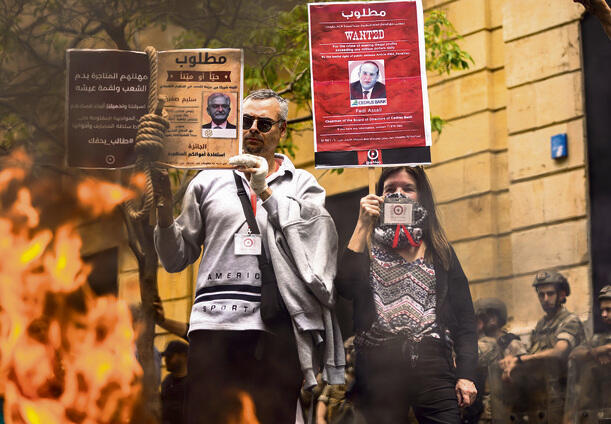

Lebanese citizens protest restriction of their bank accounts; one of the signs features a picture of Governor Riad Salameh, who is suspected of embezzling $330 million
(Photo Hassan Ammar / AP)
Lebanon’s central bank is in disarray following allegations of embezzlement against its governor, Riad Salameh, who is accused of misappropriating $330 million in public funds. Salameh, who served as the bank’s governor for 30 years, disappeared after the accusations, leaving his whereabouts unknown. Many Lebanese citizens are calling for a public trial, accusing him of blocking their savings to cover up large-scale thefts.
Salameh is not the only figure implicated in Lebanon’s rampant corruption; several high-ranking officials and former ministers have also exploited public funds for personal gain.
Lebanon is home to about 4.7 million citizens, along with 470,000 Palestinian refugees who, despite decades in large refugee camps, have not been granted citizenship. Additionally, nearly a million Syrian refugees have fled to Lebanon due to the war in their home country.
Although average salaries in the private sector have slightly increased in recent months, they remain low compared to the soaring cost of basic goods. Workers in manual and machine-operating jobs earn around $930 a month, while professionals such as engineers, doctors and university lecturers make between $2,600 and $3,600. In contrast, the wealthy elite, representing 7% of the population, earn starting salaries of $5,000 and up.
The political situation in Lebanon remains chaotic, further hindering economic recovery. The country has been without an official president for nearly two years since former President Michel Aoun, nearing 80, was forced to step down after a long tenure. Despite Aoun’s pleas to remain in office, citing his extensive experience in managing Lebanon’s 18 religious communities, including Sunni and Shia Muslims, Maronites, Catholics, Druze and Copts, his appeals were rejected.
Parliament Speaker Nabih Berri, leader of the Amal Movement and an ally of Hezbollah, has overseen 15 failed attempts to elect a president acceptable to the majority. In the absence of a president, there is no official prime minister, with interim Prime Minister Najib Mikati, a billionaire, serving since September 2021. Without consensus on a new president, elections cannot be called, and Mikati has expressed a desire to step down to focus on his private businesses.
This is the third time he has been called to serve in Beirut. In the 1990s, he was involved in Lebanese politics but then left for business. He was later called back to a political role. Now, he wishes to retire from politics for good to focus on making more billions in business ventures in Lebanon, Dubai, Europe—where he has real estate holdings—and Africa. Recently, Mikati remarked on television: “You can’t imagine how many tens of millions I lose every month because of my position.”
Currently, there is no one to take control of Lebanon’s economic situation, leaving individuals to rely on their abilities and connections. A significant portion of the population traditionally depends on remittances from relatives abroad. An estimated 8-9 million Lebanese—nearly double the country’s current population—have emigrated, primarily to the United States, South America, Europe and the Gulf. Many maintain close ties with their families back home, providing financial support.
Ali, a Lebanese businessman living in Argentina, sends hundreds of dollars each month to support his two brothers and their families. He also visits Lebanon twice a year.
“Everyone knows that a large part of Lebanon’s population relies on their ‘successful’ family members abroad. We fund food, clothing and medicine due to shortages. We are fully aware of what’s happening,” he said, adding, “This time, it looks very bad.”
In Lebanon, a country deeply divided and economically shattered, Hezbollah holds significant power. The organization has four ministers in the official government, a large bloc of parliamentary members and substantial influence over the nation’s wealthy elite and business community.
Beyond the weapons and funding it receives from Iran, Hezbollah is also involved in drug trafficking in South America and the Persian Gulf, using the profits to finance food networks, schools for the Shia community and even a newly established branch of the Scouts movement aimed at recruiting young members, some of whom are pressured into joining the organization.
Hezbollah leader Hassan Nasrallah recently addressed the severe crisis, expressing regret over the “terrible hardship,” and said that “Lebanon cannot afford another severe economic crisis.” He also criticized the civilian government, citing a European report that ranked Lebanon 138th among the most corrupt countries in the world, calling it a “very unfortunate achievement.” However, the economic crisis does not appear to be a major concern for Nasrallah and his organization, which seem more preoccupied with the looming threat of war with Israel.
Hezbollah volunteers occasionally distribute food in impoverished areas and offer money, primarily to young people, encouraging them to “join us.” The fear of war with Israel, which could further devastate Lebanon’s economy, looms large over the country.
Mohammad, a graduate of Beirut University, shared his dilemma. “I don’t know who harms my country’s citizens more, Hezbollah or Israel. I hate and fear both equally. If I had the financial means, I would take my family and flee. For now, we’re crowded into a relative’s home in the mountains of northern Lebanon.”

